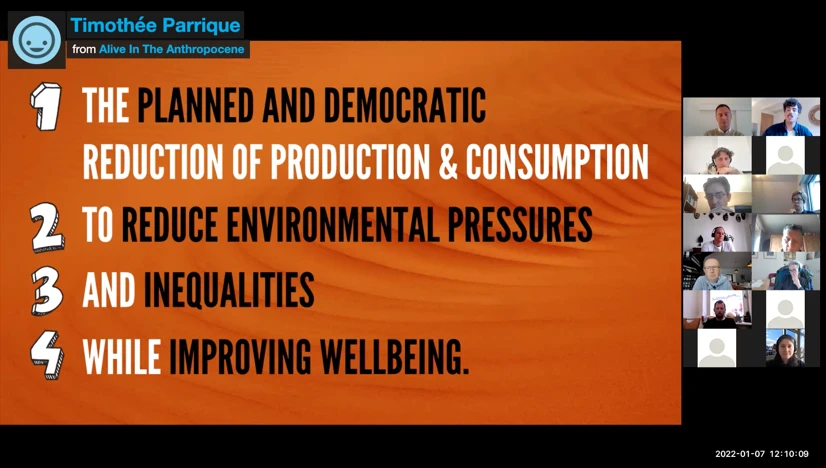Is prosperous degrowth feasible?
aliveintheanthropocene.world, 2022
Is degrowth bad economics? To properly answer this question, it is essential to understand what economic growth really is. The term ‘growth’ is often associated with an increase in wealth, a term loosely defined, but according to the degrowth-movement, economic growth is a narrower concept only describing an increase in Gross Domestic Product (GDP). To proponents of degrowth, GDP is not a general measure of wealth but a very specific statistical indicator that estimates the aggregated value of commodity production. Thus, growth policies and targets are exclusively aimed at increasing GDP, which is only indirectly related to life satisfaction.
Degrowth, on the other hand, is "the planned and democratic reduction of production and consumption to reduce environmental pressures and inequalities while improving wellbeing". A people-centered economy on the other hand, is focused on societal equity, environmental protection, and strives for long-term regeneration, contributing directly to societal wellbeing. Building a Wellbeing Economy requires redesigning frameworks (institutions, infrastructure, laws, ….) to promote a boost in behaviour and activities that support the long-term prospects for people and the planet.
The lecture raises the idea of reframing the 'anthropocene' to the 'capitalocene' due the relationship between wealth and carbon emissions as well as it being problematic to frame climate change as a problem with a technological fix. Timothée also discusses the difference between what a capitalist economy and an economy based on degrowth would look like.
Comment from our editors:
Timothée Parrique was one of the first scholars to approach degrowth almost ten years ago. Back then, he admits that funding to study such a 'revolutionary' concept was hard to find. Now, more and more academics are looking at degrowth as something that is both essential and feasible. Parrique brings all his knowledge and research experience on the table, explaining the ideological foundations of degrowth in a clearly manner and providing some pragmatic ideas to start implementing it now.
Go to: Is prosperous degrowth feasible?

